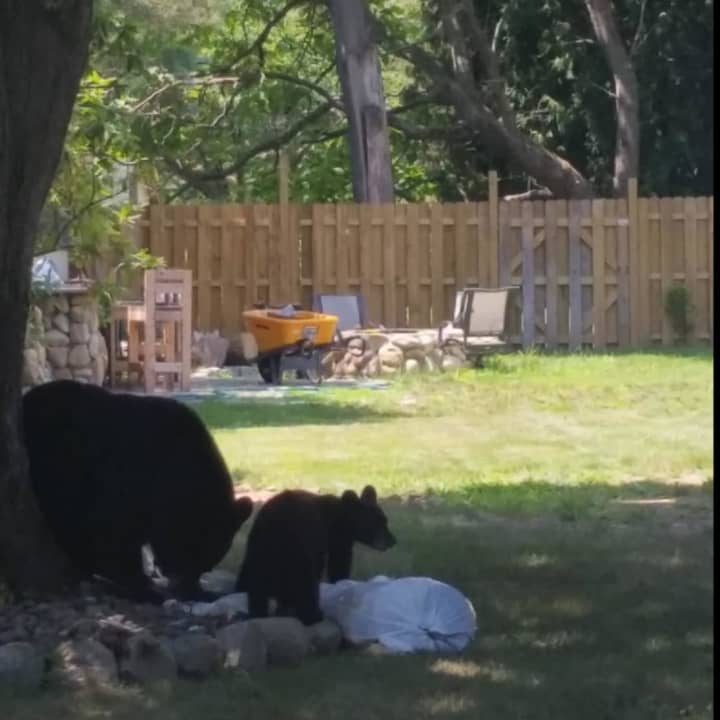Last week a family of bears took refuge from the steamy summer under a shade tree in a Sloatsburg backyard, a bag of garbage nearby the Daily Voice reported July 24.
The Hudson Valley region has had numerous bear sightings reported throughout the area since spring began, officials have said.
There are about 8,000 black bears in New York, and it's the state's largest animal after the moose, according to the New York Department of Environmental Protection.
Bears rarely feed on live prey, instead preferring natural food like nuts, roots, fruit, plants and insects.
And whatever is in your garbage can.
The biggest reason bears come knocking in suburbia is food, according to the NY DEP. Natural food is scarce in the spring and summer, especially during a drought. Plus bears have developed a preference for garbage and its easy access.
The DEP offers these tips to reduce bear encounters:
- Keep garbage in covered cans, secured and inside a garage or other enclosure.
- Don't put garbage before the morning of pickup.
- Feed birds only from Dec. 1-April 1. The rest of the year bears will be attracted.
- Bears love seeds and garbage so much, they'll seek it over natural foods.
Anyone who encounters a bear while hiking or in hanging in their yard can follow safety advice from the New York and New Jersey Trail Conference.
- It's dangerous and illegal to feed bears, so don't do it.
- Pay attention for scat, tracks, and claw marks. Make noise (clap, sing) to let bears know you're there.
- Keep your dog on a leash.
- If you see a bear, back away slowly and don't make eye contact.
- Don't run. Make noise and make yourself appear bigger by raising and waving your arms
- When a bear raises up on its hind legs, it isn't being aggressive, but curious.
- If a black bear swats the ground, huffs, or bluffs a charge, slowly back away. It means you are too close.
More information can be found on the DEP's website and the New York and New Jersey Trail Conference's website.
The DEP's brochure, "Living with bears," is available here.
Click here to follow Daily Voice Clarkstown and receive free news updates.


